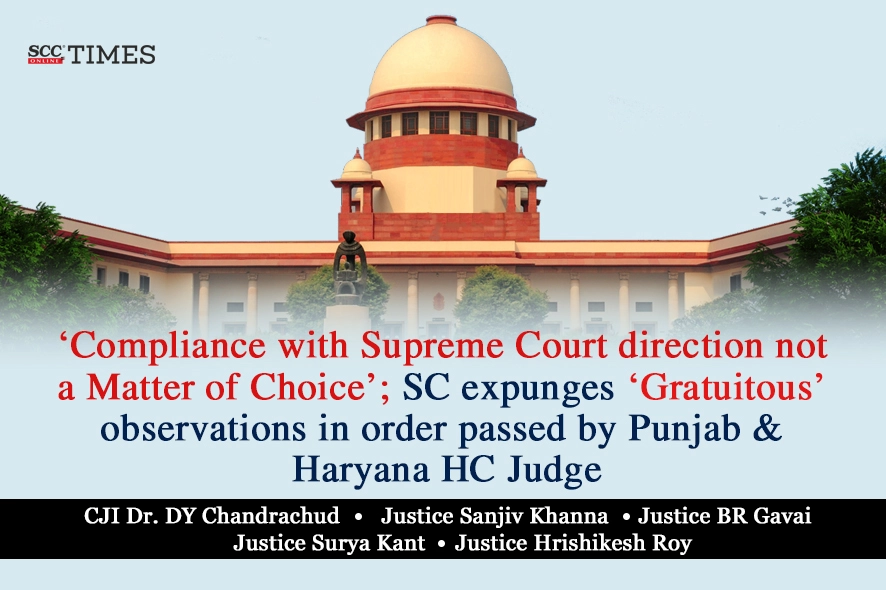Supreme Court: In a suo motu case in relation to Punjab Haryana High Court judge- Justice Rajbir Sehrawat’s recent order criticising the Supreme Court for staying proceedings in a matter pending before his bench, a five-judge Bench of Dr. DY Chandrachud, CJI and Sanjiv Khanna, BR Gavai, Surya Kant and Hrishikesh Roy, JJ. said the observations made by Justice Sehrawat were a matter of great concern and would be expunged.
The Court noted that Justice Rajbir Sehrawat in the order passed on 17-07-2024 said that the Supreme Court has no role in contempt of court proceedings concerning to an order passed by the High Court. Probably more caution on the part of the Supreme Court would have been more appropriate.
The Bench viewed that the gratuitous observations by the single judge were absolutely unnecessary and unwarranted. Compliance with Supreme Court direction is not a matter of choice but a matter of binding legal system which overlooks the process of judicial adjudication in the country.
The Court added that parties may be aggrieved by an order, but judge can never be aggrieved by a higher appellate forum.
After referring to the viral video of a hearing showing Justice Rajbir Sehrawat calling a Division Bench’s order to be “rubbish order”, the Court said it expects that greater caution is exercised by judges while dealing with Supreme Court’s orders and the orders passed by division benches.
The Bench said that the remarks of the judge would be expunged and expressed that observations in the order were scandalous. Further, the Bench said that it must also use its powers with great caution and remedy should not cause greater judicial harm.
Source: Press






